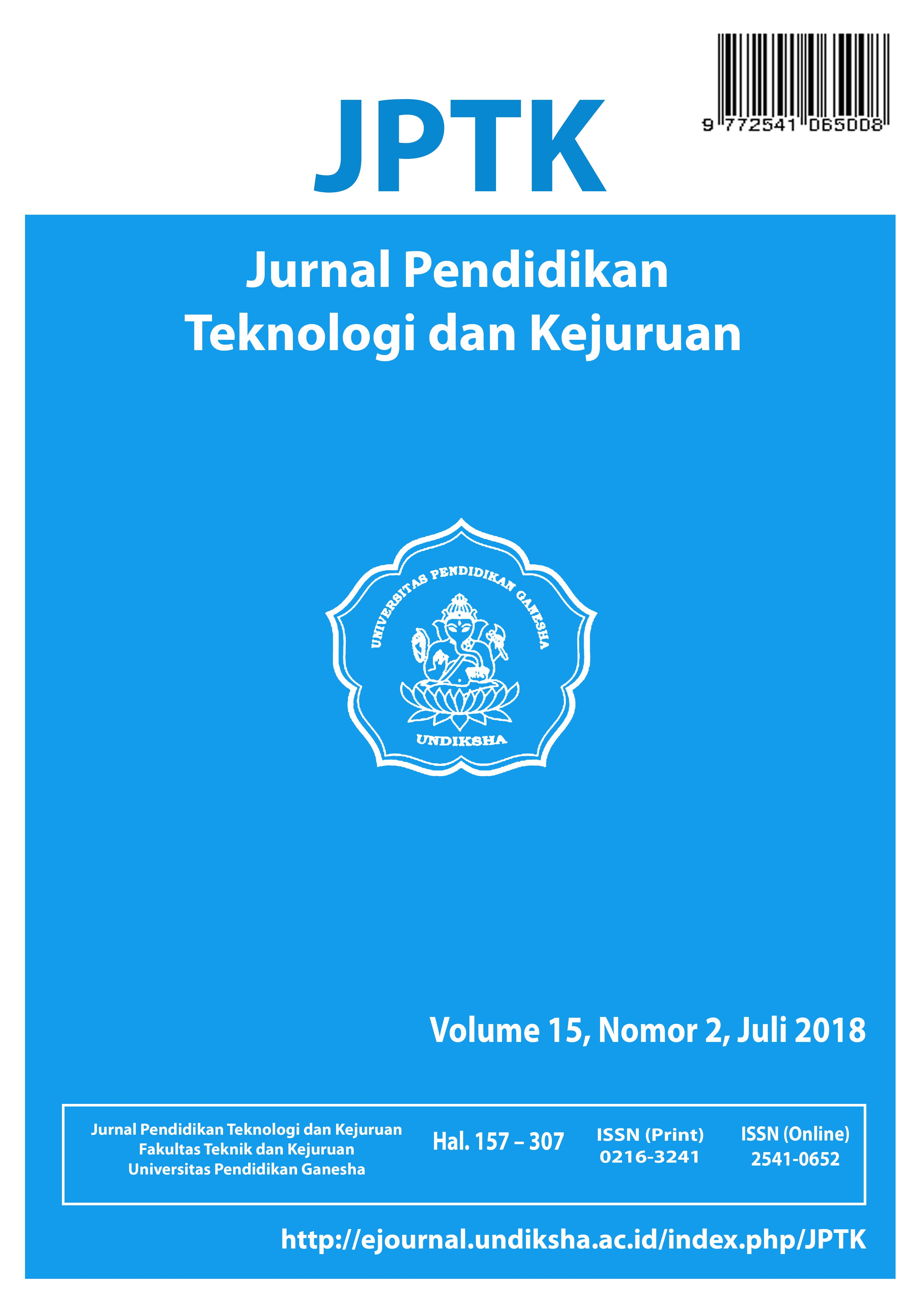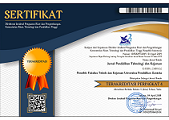ADDIE SEBAGAI MODEL PENGEMBANGAN MEDIA INSTRUKSIONAL EDUKATIF (MIE) MATA KULIAH KURIKULUM DAN PENGAJARAN
DOI:
https://doi.org/10.23887/jptk-undiksha.v15i2.14892Abstract
Curriculum and teaching courses do not have learning media that can support the implementation of blanded learning. This study aimed to: design and implement Educative Instructional Media courses in Curriculum and Teaching. The development model used is the ADDIE model consisting of five stages: 1) analysis, 2) design, 3) development, 4) implementation and 5) evaluation. In the analysis phase, analysis is done related to the needs of the system and the analysis of learning objectives curriculum and teaching courses in accordance with the syllabus. Based on the analysis of the material was divided into 7 chapters. At the design stage, a systematic design of curriculum and teaching modules is carried out and the system, database, and interface design stages are carried out. Development stage is the continuity of what has been designed, compiling the content in accordance with the syllabus, in this case LMS (Learning Management System) used Moodle. The implementation phase is to enter content into Moodle by presenting the learning process following the stages of the project based learning (PjBL) model.
Downloads
Published
Issue
Section
License
Authors who publish with the JPTK agree to the following terms:- Authors retain copyright and grant the journal the right of first publication with the work simultaneously licensed under a Creative Commons Attribution License (CC BY-SA 4.0) that allows others to share the work with an acknowledgment of the work's authorship and initial publication in this journal
- Authors are able to enter into separate, additional contractual arrangements for the non-exclusive distribution of the journal's published version of the work (e.g., post it to an institutional repository or publish it in a book), with an acknowledgment of its initial publication in this journal.
- Authors are permitted and encouraged to post their work online (e.g., in institutional repositories or on their website) prior to and during the submission process, as it can lead to productive exchanges, as well as earlier and greater citation of published work. (See The Effect of Open Access)












